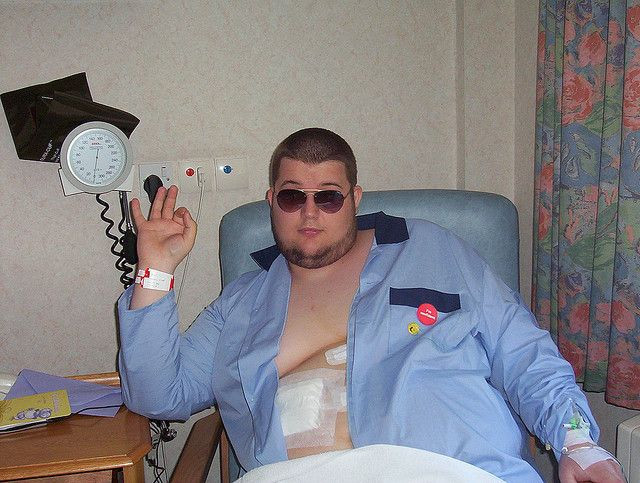Weight-Loss Surgery More Effective Than Diet And Exercise For Obese; Patients Stave Off Disease, Report Better Quality Of Life

Many people might frown at the idea of an obese person going under the knife to lose weight, but according to a new study, weight loss surgery is more effective than diet and exercise at helping obese people lose weight, stave off obesity-related diseases, and improve their quality of life.
Weight-Loss Surgery vs. Diet and Exercise
In a two year analysis of 11 studies involving 796 obese participants, researchers found that weight-loss surgeries, such as gastric bypass, gastric banding, and sleeve gastrectomy helped participants lose an average of 57.3 lbs. more than those who underwent non-surgical treatment. These patients also saw 22 times the remission rates for type 2 diabetes, and 2.5 times the remission rates for metabolic syndrome, which includes several conditions, such as increased blood pressure, abnormal cholesterol levels, and increased abdominal fat.
“After surgery, patients also reported greater improvements in quality-of-life measures, and had greater reduction in medication use than nonsurgical patients,” Viktoria Gloy, of the Basel Institute for Clinical Epidemiology and Biostatistics at University Hospital in Switzerland, and lead author of the study, told HealthDay.
Weight loss surgery is an option for people with a body mass index (BMI) of 40 or higher (extreme obesity), or for those with a BMI 35 and higher (obesity) who have a serious weight-related health issue, such as type 2 diabetes or high blood pressure, according to Mayo Clinic. They change the way the digestive system operates by limiting the amount of food a person can eat, whether it’s by making the stomach smaller with a band or by surgical removal of a portion of the stomach.
Obesity, Difficulty With Losing Weight, and Limitations To The Study
Over one-third of American adults are considered obese by the Centers for Disease Control and Prevention (CDC). Obesity puts people at risk for heart disease, stroke, certain types of cancers, and type 2 diabetes. There were about 220,000 weight loss surgeries performed in 2008, at an average cost of $25,000, according to the National Institute of Diabetes and Digestive and Kidney Diseases.
Because of these costs, exercise and diet should be considered first and foremost for obese people who have type 2 diabetes, Dr. Mitchell Roslin, chief of obesity surgery at Lenox Hill Hospital in New York City, told HealthDay. “Give yourself a chance to make lifestyle changes. But it’s very hard to lose five percent of your body weight. If you don’t think you’ll be able to do it, then you owe it to yourself to learn about surgical options,” he said. This may be particularly difficult, since the stomach nerves in obese people may have become desensitized to feeling full, one recent study found.
Despite the promising results of weight-loss surgery, the researchers found that those who engaged in diet and exercise had slightly better side-effects — they didn’t have to undergo the re-operations that many of those who underwent surgery had to go through. Some of those who underwent surgery also experienced a post-operative pneumonia. Meanwhile, those who dieted and exercised were more likely to become depressed, have inflammation of the gallbladder, and just as likely to develop anemia, the LA Times reported.
The researchers cautioned that these results were only short-term, however, since they didn’t look into surgery’s effects past two years. “The evidence beyond two years of follow-up, in particular on adverse events, cardiovascular diseases, and mortality remains unclear,” they concluded, according to a statement.
Source: Gloy V, Briel M, Chatt D, et al. Bariatric surgery versus non-surgical treatment for obesity: a systematic review and meta-analysis of randomised controlled trials. BMJ. 2013.
Published by Medicaldaily.com



























